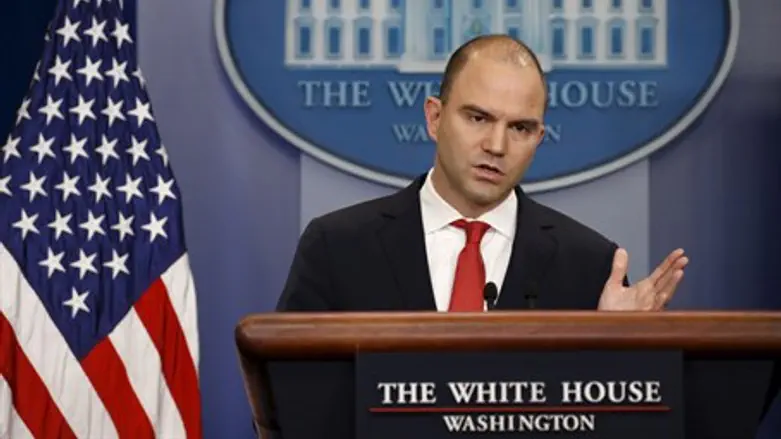
Ben Rhodes, one of President Barack Obama's top advisers, has admitted that the dealings behind the agreement struck between Iran and world powers last summer were not exactly as presented to the public, Haaretz reported Sunday.
While the American public was led to believe that negotiations between the West and the Islamic Republic took off after the election of President Hassan Rouhani, considered to be a “moderate”, in reality negotiations with hard-liners began much earlier, the report quoted Rhodes as having said in a conversation with The New York Times.
Shortly after Rouhani was elected in 2013, he and Obama exchanged letters, and Obama later publicly reached out to Iran in a speech to the UN General Assembly.
In November of that year, it was revealed that a preliminary deal between Iran and the West was made possible due to secret talks that the United States and Iran held for more than half a year and were authorized by Obama himself.
Those discussions were kept hidden even from America's closest friends, including its five negotiating partners and from Israel.
The reason for the skewed presentation of the talks' timeline, said Rhodes on Sunday, was to enable the administration to sell the deal to a wider audience.
After the deal was struck last July, Rhodes, the deputy national security adviser for strategic communications, explained to the Times how Washington's foreign policy objectives focused on Iran.
“It’s the center of the arc,” he said, adding, “We don’t have to kind of be in cycles of conflict if we can find other ways to resolve these issues. We can do things that challenge the conventional thinking that, you know, ‘AIPAC doesn’t like this,’ or ‘the Israeli government doesn’t like this,’ or ‘the gulf countries don’t like it.’ It’s the possibility of improved relations with adversaries. It’s nonproliferation. So all these threads that the president’s been spinning – and I mean that not in the press sense – for almost a decade, they kind of all converged around Iran.”
Former Secretary of Defense Leon Panetta, who was also interviewed in the same article, noted that his job at the time of negotiations was to keep Israel from striking Iran's nuclear facilities.
Speaking of Prime Minister Binyamin Netanyahu and former Defense Minister Ehud Barak, Panetta noted that “They were both interested in the answer to the question, ‘Is the president serious?’ ”
“And you know my view, talking with the president, was: If brought to the point where we had evidence that they’re developing an atomic weapon, I think the president is serious that he is not going to allow that to happen.”
Asked whether he would make that assessment now, Panetta answered, “Probably not.”
Regarding the media's support for the deal, Rhodes admitted in the interview that “We created an echo chamber.”
"They were saying things that validated what we had given them to say,” he said, adding, “We had test drives to know who was going to be able to carry our message effectively, and how to use outside groups like Ploughshares, the Iran Project and whomever else. So we knew the tactics that worked.”
